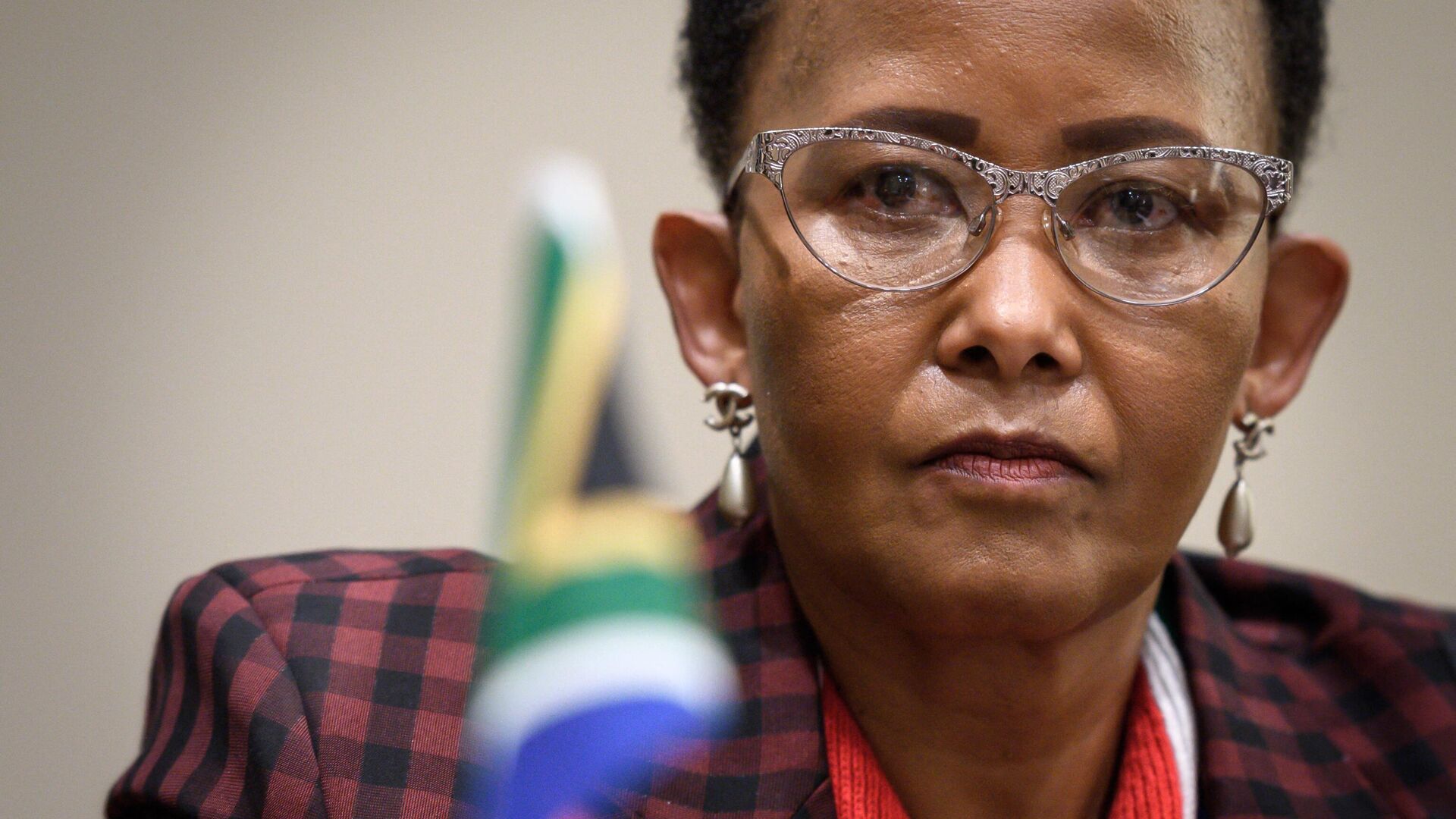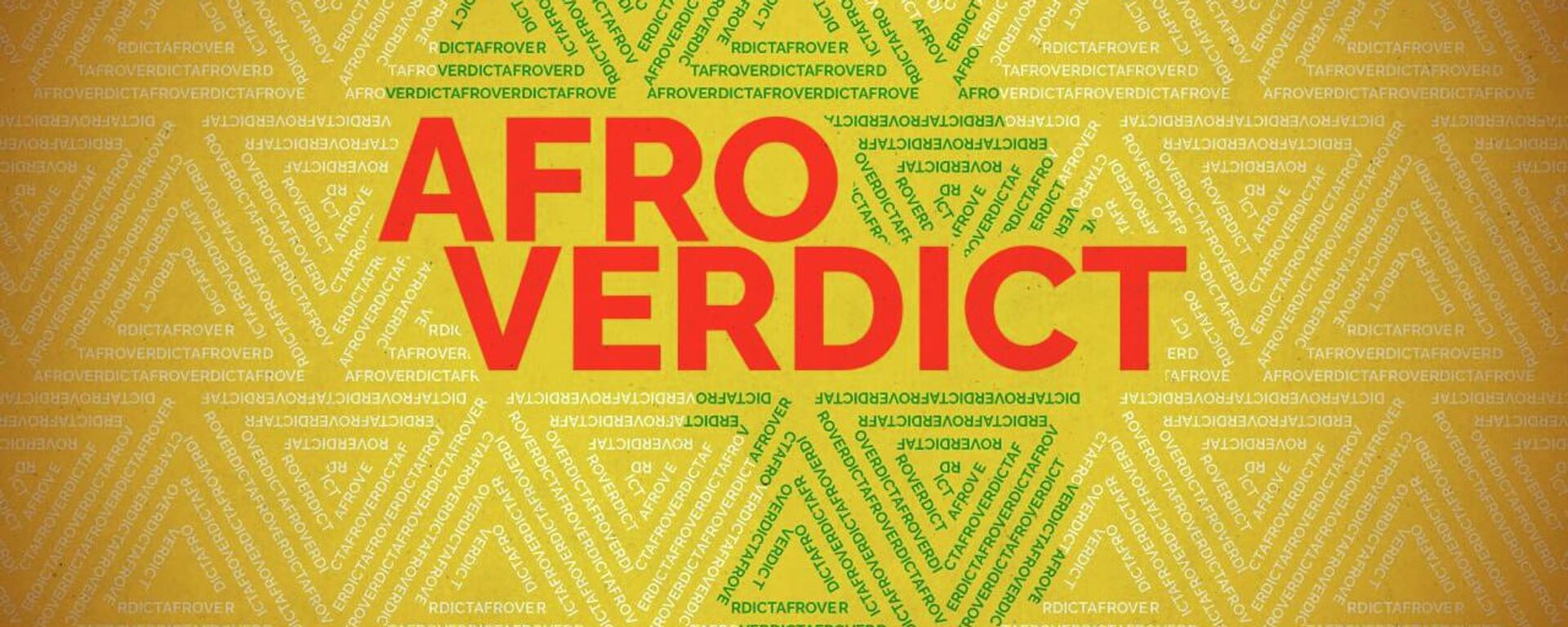https://en.sputniknews.africa/20231208/brics-is-not-anti-western-coalition-but-group-for-unity-and-cooperation-sas-representative-to-eu-1064026005.html
BRICS is Not "Anti-Western Coalition" But Group for Unity and Cooperation: SA's Representative to EU
BRICS is Not "Anti-Western Coalition" But Group for Unity and Cooperation: SA's Representative to EU
Sputnik Africa
During the 15th BRICS Summit in August, held in South Africa, the alliance officially approved the accession of Iran, Saudi Arabia, Ethiopia, Egypt, the United... 08.12.2023, Sputnik Africa
2023-12-08T18:03+0100
2023-12-08T18:03+0100
2023-12-09T09:29+0100
sub-saharan africa
south africa
european union (eu)
brics
denis moncada
international
iran
saudi arabia
argentina
brics expansion
https://cdn1.img.sputniknews.africa/img/07e7/0c/08/1064027806_0:0:3071:1728_1920x0_80_0_0_ee8e1a54707e855310ff8d79667f1d0d.jpg
Increasing intergovernmental cooperation within the BRICS framework is intended to improve the unity and cooperation of the member countries and does not mean complete exclusion of conventional trading partners, particularly the EU, or challenging other blocs, South Africa’s chief representative to the EU, Tokozile Xasa, stated on Thursday, the media reported.During the conference, Xasa also reportedly stated that with the upcoming expansion of BRICS to BRICS+, the bloc would account for 47% of the world's population and approximately 30% of the global GDP.Moreover, the South African delegate emphasized Africa's enormous potential for economic growth due to its abundance of natural resources and favorable demographics. According to Xasa, BRICS, as a significant player in the global community, can establish a mutually beneficial partnership that will contribute to the advancement of the African continent.She is therefore optimistic about the further growth of the BRICS-EU partnership, especially in the field of agriculture. Xasa highlighted the possibility of working together in the agricultural sector to ultimately end hunger and poverty.Regarding the BRICS expansion, Xasa told the media outlet that the establishment of this union initially gave a chance for countries of Global South to actively influence the global agenda.She also highlighted the creation of the National Development Bank, to which the BRICS nations have already made financial contributions. Xasa asserted that this bank will be crucial in funding infrastructure initiatives and advancing industry in Africa.BRICS expansion has been welcomed by many African, Latin American and Asian countries: 23 other nations have officially applied to join the BRICS grouping of Brazil, Russia, India, China, and South Africa.Moreover, the importance of the bloc's growth has been repeatedly underlined by different officials. For instance, Nicaraguan Foreign Affairs Minister Denis Moncada argued in an interview with Sputnik that the expansion of BRICS indicates that the world is tired of US hegemony and imperialism, while Venezuelan Foreign Minister Yvan Gil emphasized that the expansion is very important, especially for the energy sector, as after the inclusion of new members the bloc will account for over 80% of the world's oil reserves and production.
https://en.sputniknews.africa/20230825/sa-minister-brics-expansion-is-a-game-changer-1061631220.html
south africa
iran
saudi arabia
argentina
egypt
ethiopia
united arab emirates (uae)
Sputnik Africa
feedback@sputniknews.com
+74956456601
MIA „Rossiya Segodnya“
2023
Christina Glazkova
https://cdn1.img.sputniknews.africa/img/07e7/0b/07/1063380906_0:0:673:674_100x100_80_0_0_79628b4d0cd9f29291a57aa13bbf9e7a.jpg
Christina Glazkova
https://cdn1.img.sputniknews.africa/img/07e7/0b/07/1063380906_0:0:673:674_100x100_80_0_0_79628b4d0cd9f29291a57aa13bbf9e7a.jpg
News
en_EN
Sputnik Africa
feedback@sputniknews.com
+74956456601
MIA „Rossiya Segodnya“
Sputnik Africa
feedback@sputniknews.com
+74956456601
MIA „Rossiya Segodnya“
Christina Glazkova
https://cdn1.img.sputniknews.africa/img/07e7/0b/07/1063380906_0:0:673:674_100x100_80_0_0_79628b4d0cd9f29291a57aa13bbf9e7a.jpg
south africa, european union (eu), brics, denis moncada, international, iran, saudi arabia, argentina, brics expansion, egypt, ethiopia, united arab emirates (uae), cooperation
south africa, european union (eu), brics, denis moncada, international, iran, saudi arabia, argentina, brics expansion, egypt, ethiopia, united arab emirates (uae), cooperation
BRICS is Not "Anti-Western Coalition" But Group for Unity and Cooperation: SA's Representative to EU
18:03 08.12.2023 (Updated: 09:29 09.12.2023) Christina Glazkova
Writer / Editor
During the 15th BRICS Summit in August, held in South Africa, the alliance officially approved the accession of Iran, Saudi Arabia, Ethiopia, Egypt, the United Arab Emirates and Argentina.
Increasing intergovernmental cooperation within the BRICS framework is intended to improve the unity and cooperation of the member countries and does not mean complete exclusion of conventional trading partners, particularly the
EU, or challenging other blocs, South Africa’s chief representative to the EU, Tokozile Xasa, stated on Thursday, the media reported.
"The expansion should be seen as an extension of BRICS countries for unity and cooperation with a broader set of developing countries. It is not an anti-Western coalition, as most would like to believe. Since BRICS Plus and South Africa support a strategic partnership with the EU within the SA-EU strategic partnership, it is important to recognize the complex network of connections between these formations," she reportedly said during the European Parliament conference on "The Rising Power of BRICS: Implications for the European Union".
During the conference, Xasa also reportedly stated that with the upcoming
expansion of BRICS to BRICS+, the bloc would account for 47% of the world's population and approximately 30% of the global GDP.
Moreover, the South African delegate emphasized Africa's enormous potential for economic growth due to its abundance of natural resources and favorable demographics. According to Xasa, BRICS, as a significant player in the global community, can establish a mutually beneficial partnership that will contribute to the advancement of the African continent.
Speaking of South Africa's role in the African continent, Xasa said that her country is vital to the social and economic rebirth of Africa and to efforts for peace, security, and recovery.
She is therefore optimistic about the further growth of the BRICS-EU partnership, especially in the field of agriculture. Xasa highlighted the possibility of working together in the agricultural sector to ultimately end hunger and poverty.
Regarding the BRICS expansion, Xasa told the media outlet that the establishment of this union initially gave a chance for countries of Global South to actively influence the global agenda.
"When BRICS emerged, we consistently pointed out that it raises the voice of the South. They have very clear ideas about what they can do for joint development, creating a partnership that allows countries to see what obstacles, areas and how they can contribute together to where we are today," Xasa was quoted as saying.
She also highlighted the creation of the
National Development Bank, to which the BRICS nations have already made financial contributions. Xasa asserted that this bank will be crucial in funding infrastructure initiatives and advancing industry in Africa.
BRICS expansion has been welcomed by many African, Latin American and Asian countries: 23 other nations have officially applied to join the BRICS grouping of Brazil, Russia, India, China, and South Africa.
Moreover, the importance of the bloc's growth has been repeatedly underlined by different officials. For instance,
Nicaraguan Foreign Affairs Minister Denis Moncada argued in an interview with Sputnik that the expansion of BRICS indicates that the world is tired of US hegemony and imperialism, while
Venezuelan Foreign Minister Yvan Gil emphasized that the expansion is very important, especially for the energy sector, as after the inclusion of new members the bloc will account for over 80% of the world's oil reserves and production.



